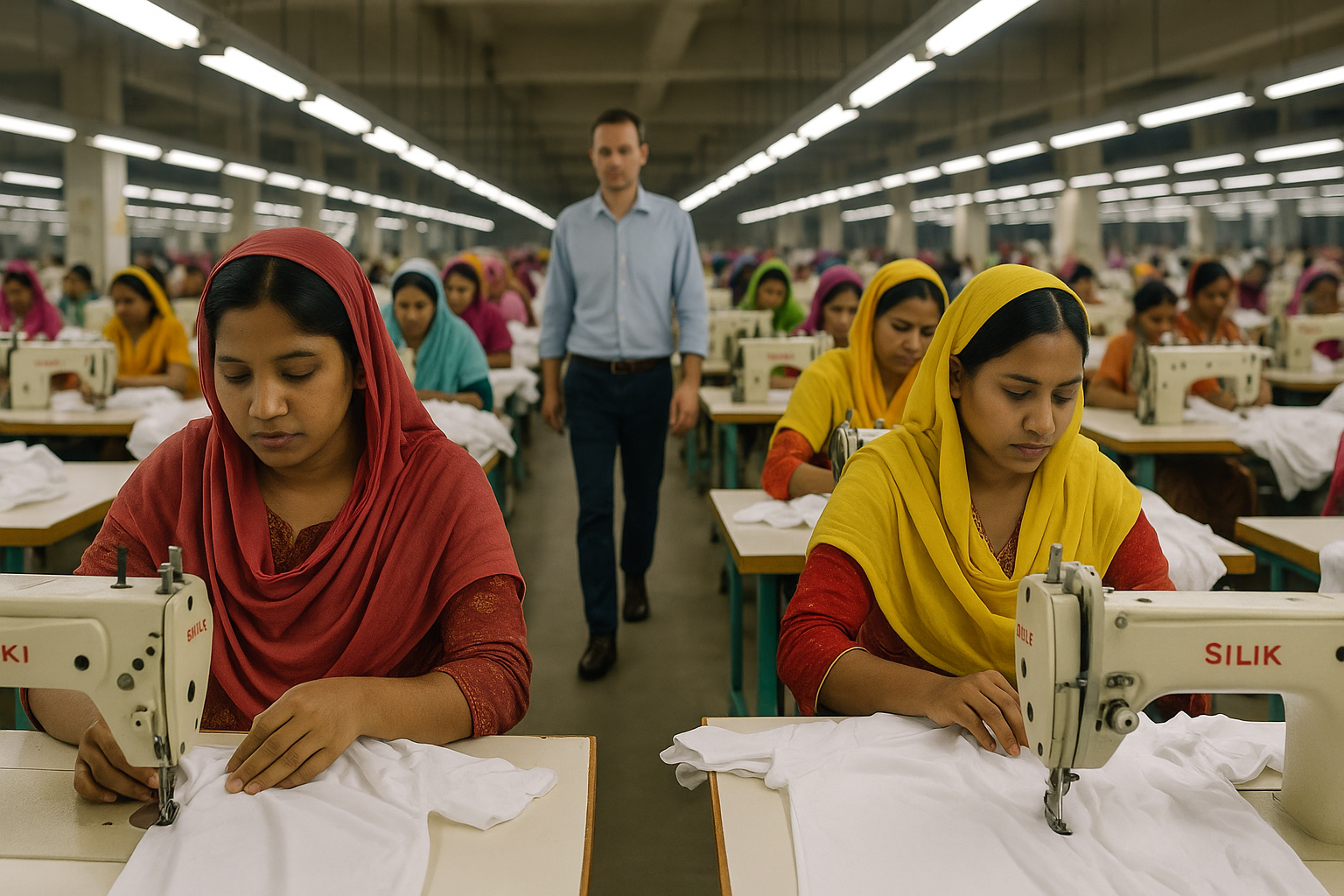Transforming Quality Control in Bangladesh's Factories
In the bustling textile landscape of Bangladesh, where garments are produced at an astonishing scale, ensuring quality is paramount. As international fashion brands increasingly focus on sustainability and ethical practices, the role of Western garment quality inspectors has emerged as a significant asset. These inspectors not only bring expertise but also a fresh perspective that can reshape production processes, enhance compliance, and ultimately lead to better products.
The Unique Edge of Western Inspectors
Western garment quality inspectors possess a unique understanding of the global market's demands. Their exposure to various standards allows them to identify discrepancies that may go unnoticed by local inspectors. This insight is crucial in a country like Bangladesh, where the textile industry is a cornerstone of the economy.
Bridging the Gap Between Local Standards and Global Expectations
One of the primary advantages of employing Western inspectors is their ability to bridge the gap between local manufacturing standards and international expectations. They bring a wealth of knowledge regarding industry benchmarks, compliance requirements, and consumer preferences. This ensures that products not only meet local regulations but also adhere to the quality expected by international brands.
Enhancing In-Line Inspection Processes
In-line inspection is a proactive approach that allows for real-time monitoring during the production process. By integrating Western quality inspectors into this system, factories can significantly reduce defects before garments reach the final stages of production.
Immediate Feedback Loop
Western inspectors provide immediate feedback, allowing production teams to address issues as they arise. This leads to a more efficient workflow, minimizing the risk of costly reworks and ensuring timely delivery. For instance, if an inspector identifies a stitching inconsistency during in-line inspection, corrective measures can be taken instantly, preventing a larger batch of defective products.
The Role of Final Random Inspection in Quality Assurance
Final random inspection (FRI) serves as the last line of defense before garments are shipped. Having Western inspectors conduct this crucial phase adds an extra layer of assurance for international buyers.
Establishing Trust with Buyers
Buyers often seek transparency in the production process. When Western inspectors are part of the final random inspection, it instills confidence in the product's quality. This not only strengthens the relationship between factories and brands but also enhances the factory's reputation in a competitive market.
Promoting Sustainability through Quality Control
As sustainability gains traction in the fashion industry, the role of quality inspectors is evolving. Western garment inspectors are uniquely positioned to advocate for sustainable practices within factories.
Identifying Sustainable Practices
These inspectors can help identify areas where factories can adopt sustainable practices, such as reducing waste and optimizing resource use. For example, they might suggest alternative materials or processes that align with eco-friendly standards. This proactive approach not only benefits the environment but also meets the growing consumer demand for sustainable fashion.
Logistical Advantages of Employing Western Inspectors
Logistics play a critical role in the garment supply chain, and Western inspectors can contribute significantly to optimizing this process.
Streamlined Supply Chain Management
With their global perspective, Western inspectors can provide insights into efficient supply chain management. They can identify bottlenecks in production and suggest improvements, ensuring that goods are delivered on time. This is particularly important for international brands that operate on tight schedules and require reliable partners.
Empowering Local Workers through Training and Development
Another notable benefit of integrating Western quality inspectors into Bangladeshi factories is their potential to uplift local workforce skills.
Knowledge Transfer and Skill Enhancement
Western inspectors often engage in training sessions with local staff, enhancing their understanding of quality standards and inspection procedures. This knowledge transfer fosters a culture of quality within factories, empowering local workers and encouraging pride in their craftsmanship.
Case Studies: Success Stories from Bangladesh
Several factories in Bangladesh have successfully integrated Western garment inspectors into their quality assurance processes, yielding remarkable results.
Factory A: Reducing Defect Rates
Factory A, which specializes in denim production, saw a 30% reduction in defect rates after employing Western inspectors for in-line and final random inspections. The immediate feedback provided by these inspectors allowed the factory to make necessary adjustments on the fly, leading to higher quality output.
Factory B: Enhancing Sustainability Practices
Factory B focused on sustainable fashion and engaged Western inspectors to assess their processes. The inspectors identified several areas for improvement, leading to a 20% decrease in water usage and a significant reduction in textile waste. This not only benefitted the environment but also positioned Factory B as a leader in sustainable practices.
Looking Ahead: The Future of Quality Control in Bangladesh
The integration of Western garment quality inspectors is more than just a trend; it reflects a shift towards a more collaborative and quality-focused approach in the Bangladeshi textile industry. As international brands continue to prioritize sustainability, ethical production, and high-quality garments, the demand for skilled inspectors will likely grow.
Building a Sustainable Future
Investing in quality inspection services is an investment in the future of the industry. By embracing this model, Bangladeshi factories can enhance their marketability, improve working conditions, and contribute to a more sustainable fashion ecosystem.
Final Thoughts on Quality Assurance in Bangladeshi Factories
The role of Western garment quality inspectors in Bangladesh is undeniably transformative. By bridging quality gaps, enhancing sustainability practices, and empowering local workers, these inspectors are paving the way for a more robust and reliable textile sector. As the industry evolves, these inspectors will be at the forefront, ensuring that Bangladesh remains a key player on the global fashion stage.

